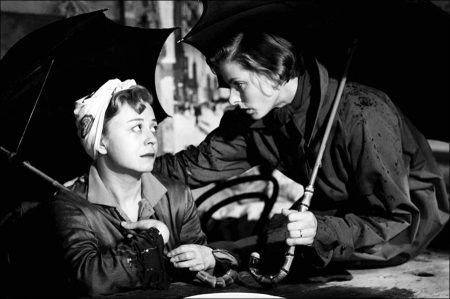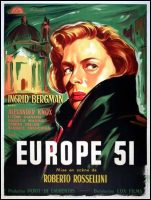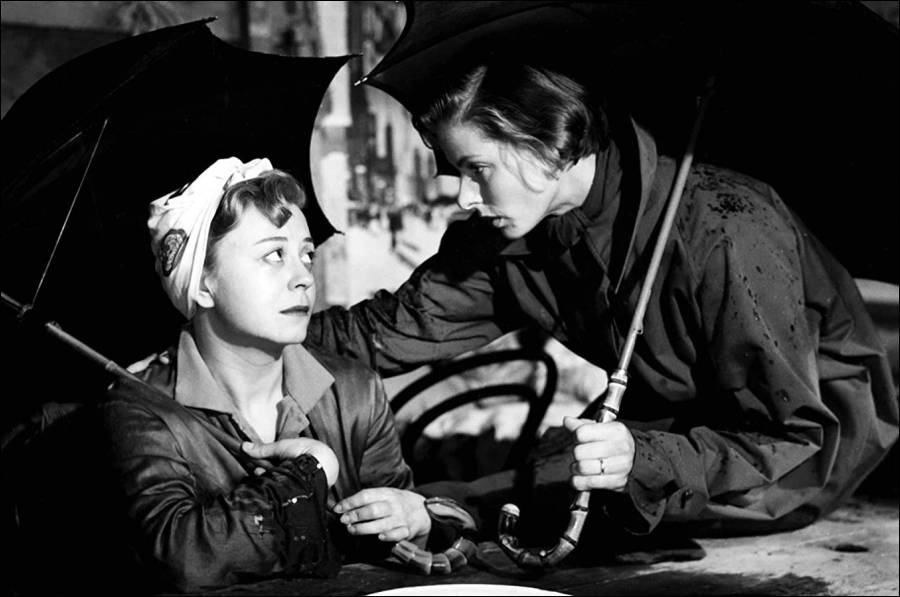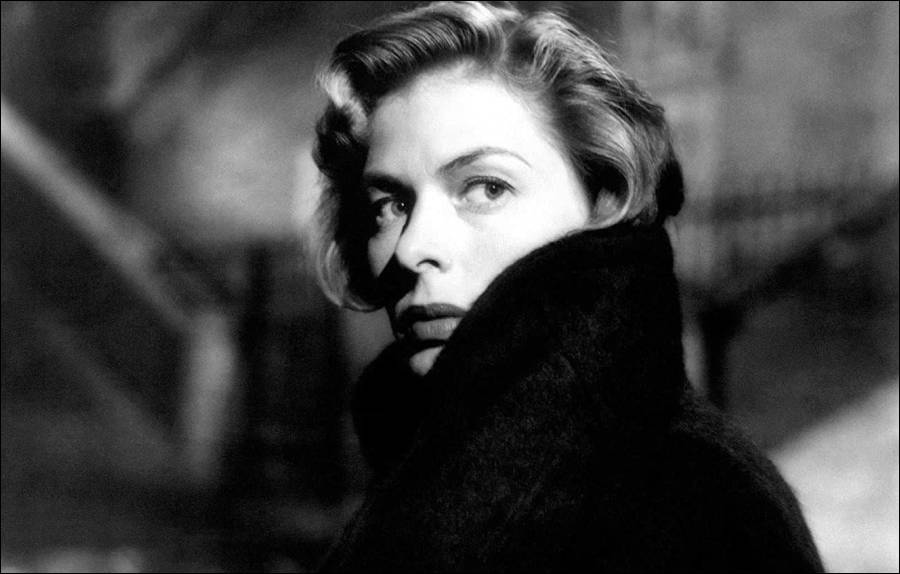Taglines: Would she lose her husband, her home? – Her answer will stun you!
Europe ’51 movie storyline. Irene Girard is an ambassador’s wife and used to living in luxury. After the dramatic death of her son, she feels guilty of having neglected him and feels compelled to help people in need who cross her path. One day she offers shelter to a man who is evading justice, and she ends being arrested herself. Her husband, for the sake of social propriety, arranges for a doctor to declare her insane. Irene escapes one prison to enter another, and to reflect on what sort of society she lives in.
Europe ’51, also known as The Greatest Love) is a 1952 Italian neorealist film directed by Roberto Rossellini, starring Alexander Knox and Ingrid Bergman as a woman who’s declared insane after her son’s suicide. Supporting cast are Ettore Giannini, Teresa Pellati, Giulietta Masina, Marcella Rovena, Tina Perna, Sandro Franchina, Maria Zanoli and Silvana Veronese.
Long fascinated by Francis of Assisi, Roberto Rossellini decided to create a film that placed a person of the saint’s character in post-war Italy and showed what the consequences would be. The film’s sets were designed by Virgilio Marchi, a veteran Futurist architect.
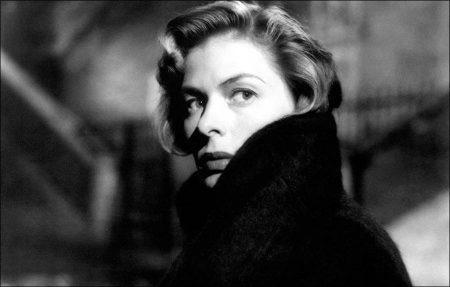
About the Story
Industrialist George Girard (Alexander Knox) and his wife Irene (Ingrid Bergman) are a wealthy couple living in post-war Rome with their son Michele (Sandro Franchina), and they host so many parties that their son feels neglected. During a dinner party, Michele constantly tries to get his mother’s attention, but Irene is more interested in being a good hostess to her guests than an attentive mother, and as a result Michele attempts suicide by falling several stories down a stairwell, fracturing his hip.
At the hospital, Irene promises never to leave Michele and to be more attentive, but he dies soon after from a blood clot. Irene is bedridden for 10 days for depression, and when she finally comes out of it, she enlists the help of her cousin Andrea Casatti (Ettore Giannini) to help her overcome her grief. Andrea is a publisher and a Communist, and determines she needs to see “the other Rome,” and takes her to the poorer parts of the city.
Irene leaps to help when Andrea mentions a poor family whose son needs expensive medicine, and she immediately decides to help, donating her money to help the child. Irene is struck by the dreadful living conditions in the slums. She meets a penniless woman named Passerotto (Giulietta Masina) in a shack by a river and helps her care for a large brood of ragged kids. Irene secures a factory job for Passerotto, and even fills in for her for the first day. She’s horrified by the factory’s working conditions, which she sees as slavery. Irene then cares for a prostitute who is dying of tuberculosis.
A priest (Alfred Browne) who befriends her, likewise, eventually backs away from her when his appeals to her to submit to God are not reciprocated, and Irene has a long conversation with him about the “true mercies” of God while the poor suffer needlessly and no one does anything about it.
As a result of helping these people, she spends less and less time at home. George and Irene’s mother are concerned about her unexplained absences from the house, and George accuses her of having an affair with Andrea, which causes her to leave him. She is eventually picked up by the police after helping a boy who had committed a theft evade arrest (she had told him to turn himself in). Irene is so shocked by George’s overreaction that she doesn’t try to argue with him, but her husband and the authorities decide to put her in a mental institution, and he abandons her.
Europe ’51 (1952)
Directed by: Roberto Rossellini
Starring: Ingrid Bergman, Alexander Knox, Ettore Giannini, Teresa Pellati, Giulietta Masina, Marcella Rovena, Tina Perna, Sandro Franchina, Maria Zanoli, Silvana Veronese
Screenplay by: Roberto Rossellini, Sandro De Feo, Mario Pannunzio, Ivo Perilli, Brunello Rondi
Production Design by: Virgilio Marchi
Cinematography by: Aldo Tonti
Film Editing by: Jolanda Benvenuti
Set Decoration by: Ferdinando Ruffo
Music by: Renzo Rossellini
MPAA Rating: None.
Distributed by: I.F.E. Releasing Corporation
Release Date: December 4, 1952 (Italy), 1953 (Germany), November 3, 1954 (United States)
Views: 142
